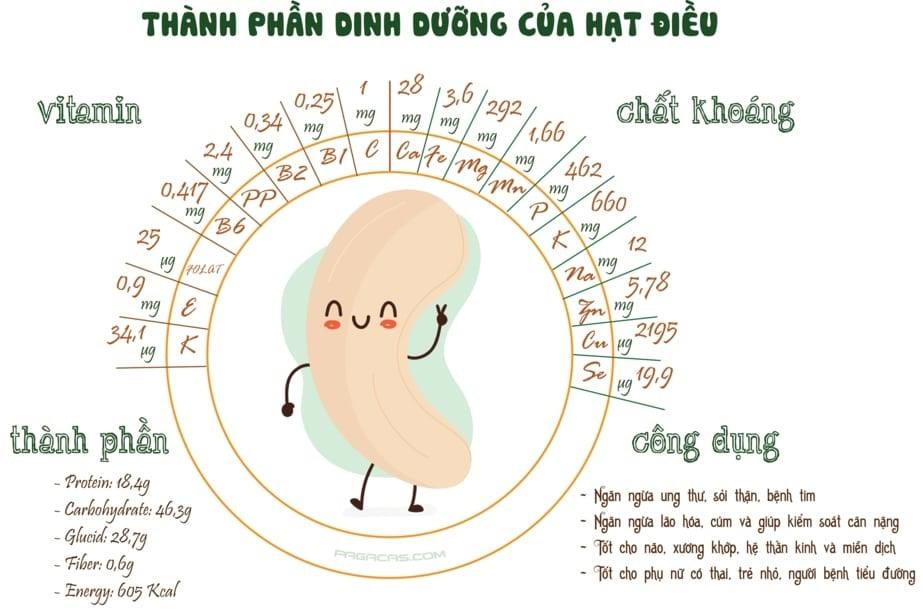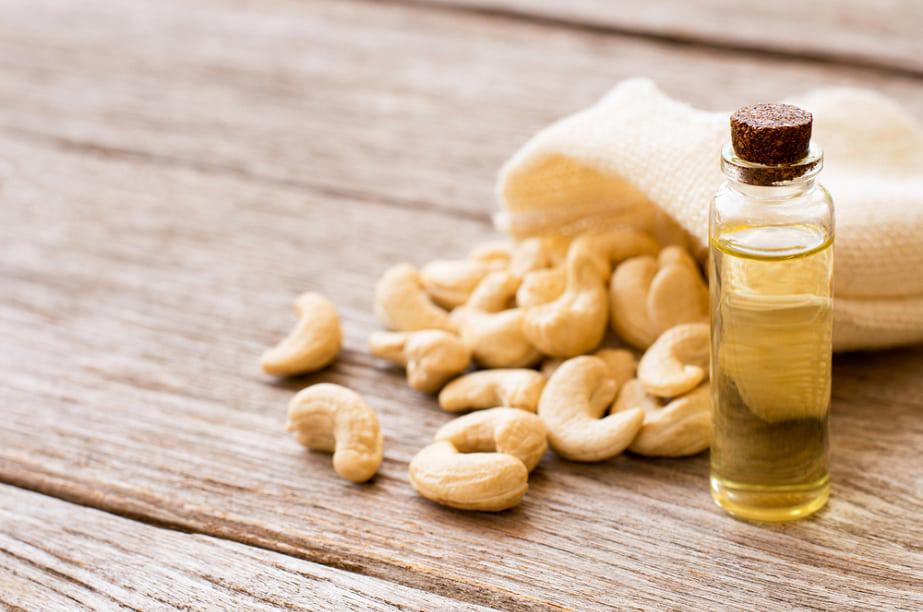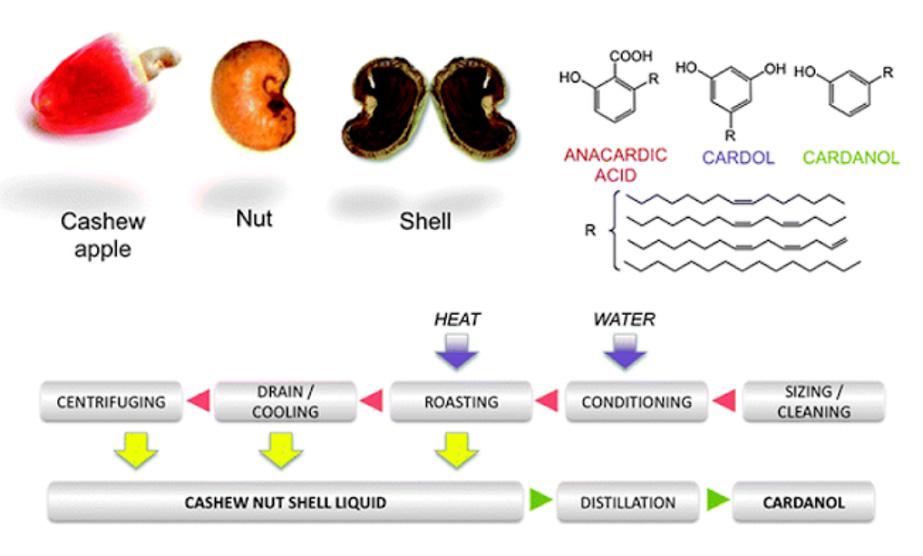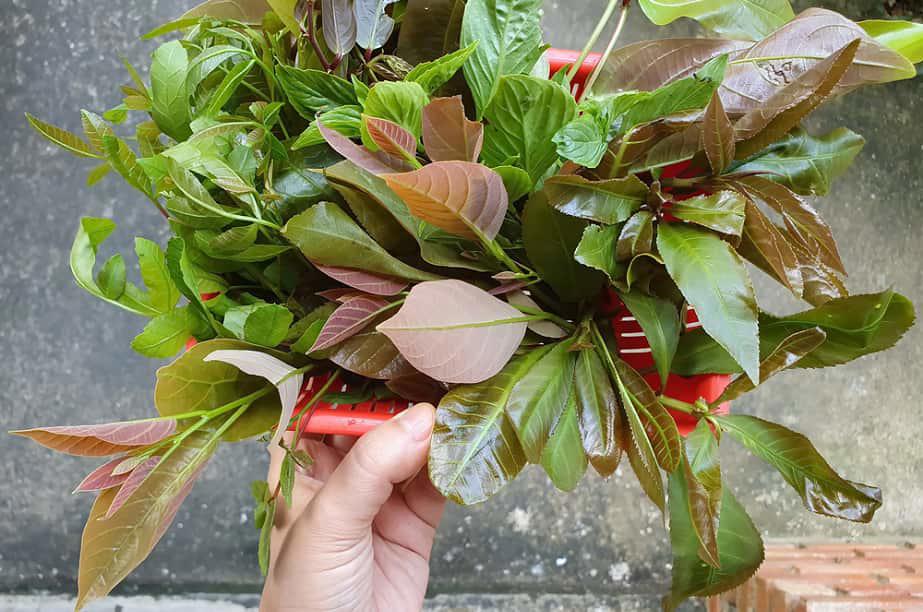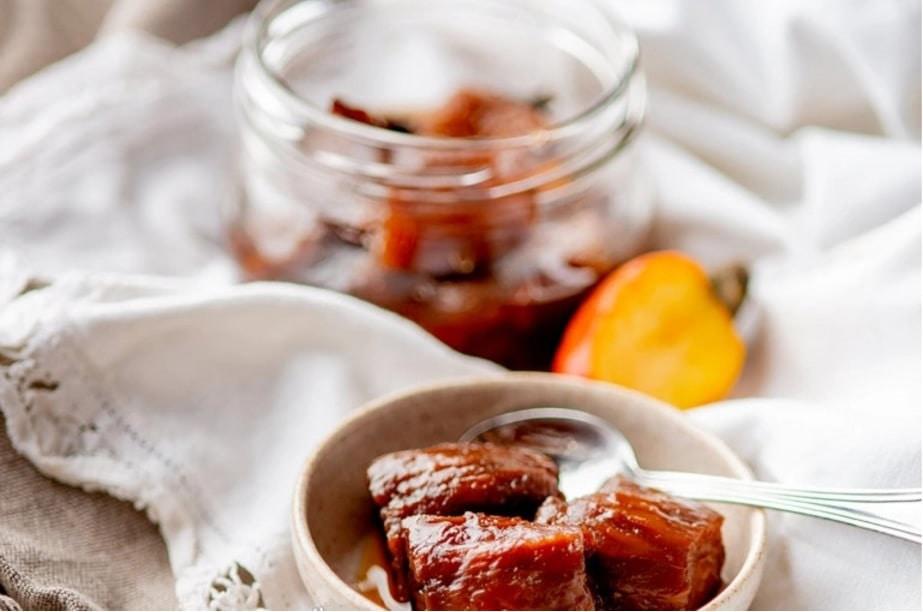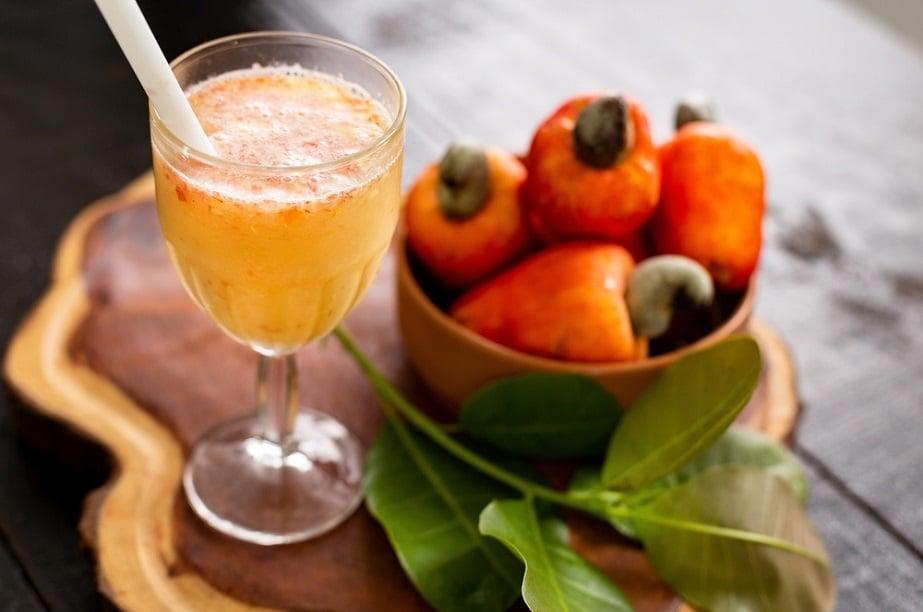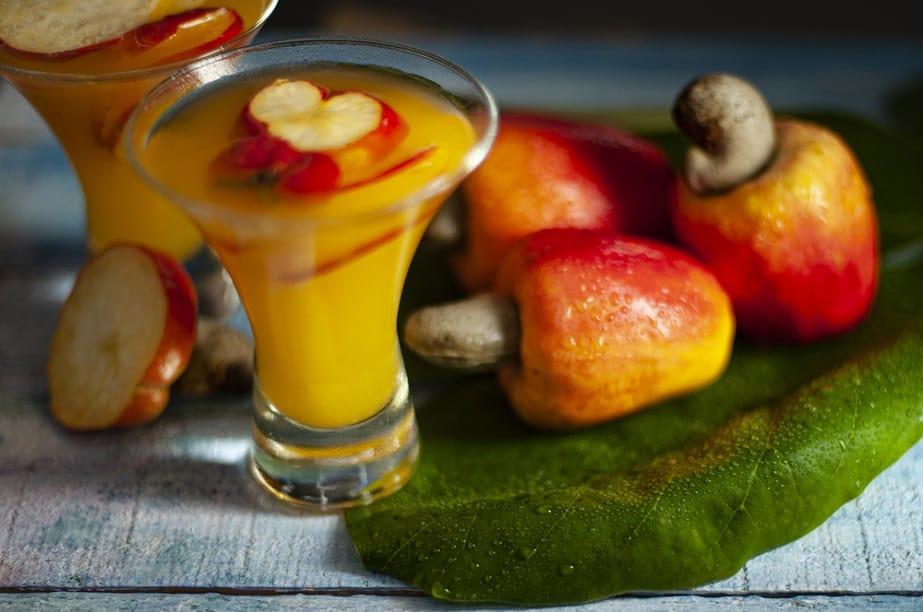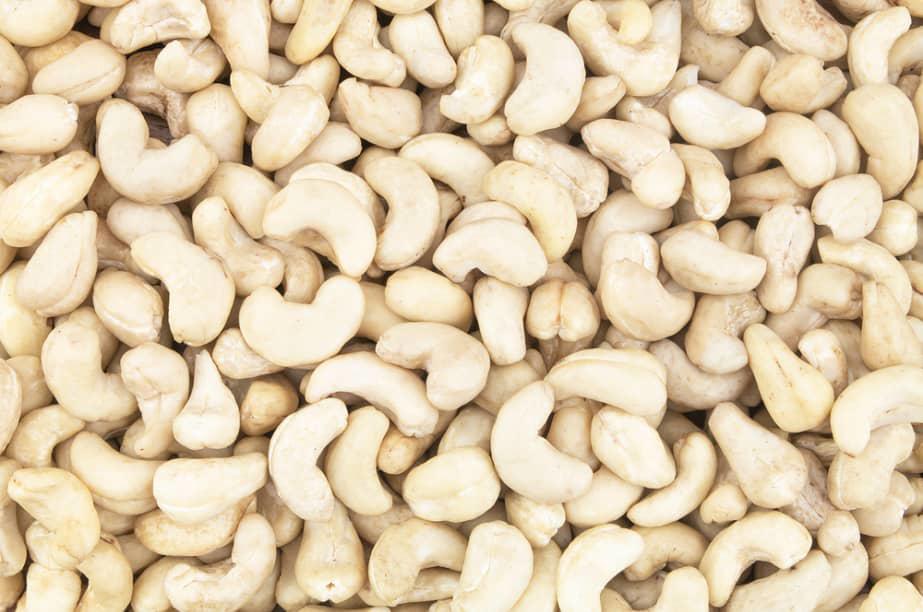The following information and regulations are taken from Standard DDP-17 on the quality control of cashew nut trade and marketing issued by the United Nations Economic Commission for Europe (UNECE) in 2013.
Whole cashew kernels
Cashew kernels are divided into different types by size as shown in the table below:
|
Grade |
The number of cashew nuts per pound |
The number of cashew nuts per kg |
|
W150 |
150 |
325 |
|
W180 |
180 |
395 |
|
W210 |
210 |
465 |
|
W240 |
240 |
530 |
|
W320 |
320 |
706 |
|
W450 |
450 |
990 |
|
W500 |
500 |
1100 |
Whole cashew kernels are used in the field of:
- Snacks, used for the deep processing industry such as roasting, frying or seasoning.
- Used in the baking and confectionery industry.
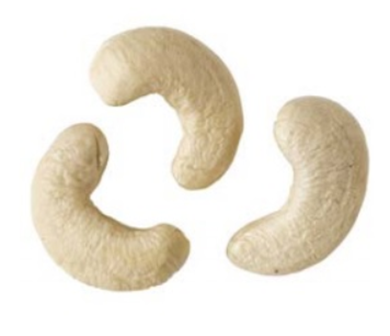
Pieces of cashew kernels
According to technical standards, broken cashew nuts are divided into categories as follows:
|
Grade |
Minimum size |
|
Large Pieces (LP) |
Do not pass through sieve aperture of 4.75 mm |
|
Small Pieces (SP) |
Do not pass through sieve aperture of 2.8 mm |
|
Very small pieces |
Do not pass through sieve aperture of 2.36 mm |
Broken cashew kernels are used in the following fields: Confectionery or bakery products, sweets and cereals.
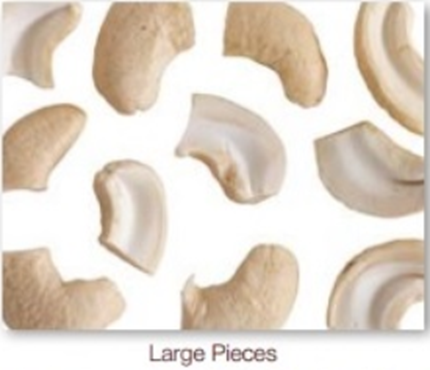
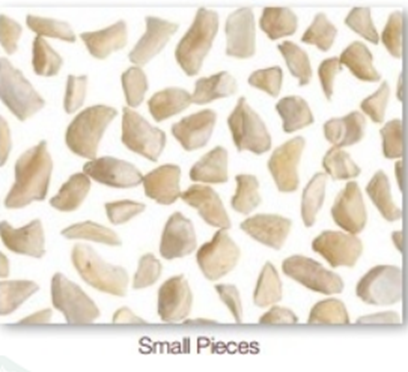
Diced/Baby Bits
Granules, also known as "baby bits”, have technical standards that require a minimum size not to pass through a sieve aperture of 1.70 mm.
Diced cashew kernels are used in the field of confectionery, processing mixed cereals or sprinkled on ice cream.
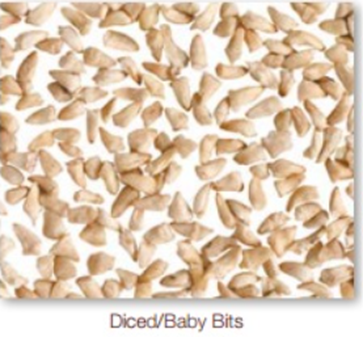
Cashew kernel powder
Cashew kernel powder is a fine powder used for the production of cashew butter or mixtures of cashew paste, Indian curry, and the confectionery industry.
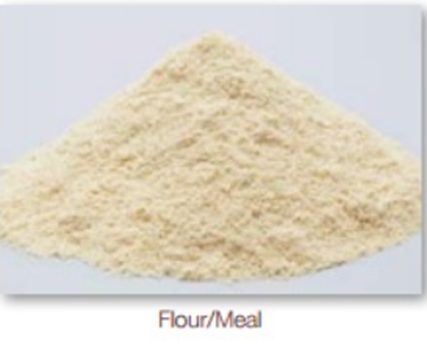
REFERENCE
Available at:
https://www.nutfruit.org/files/tech/1503569664_Cashew_Kit_Vietnamese_LR.pdf





